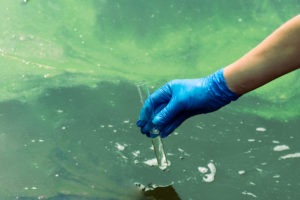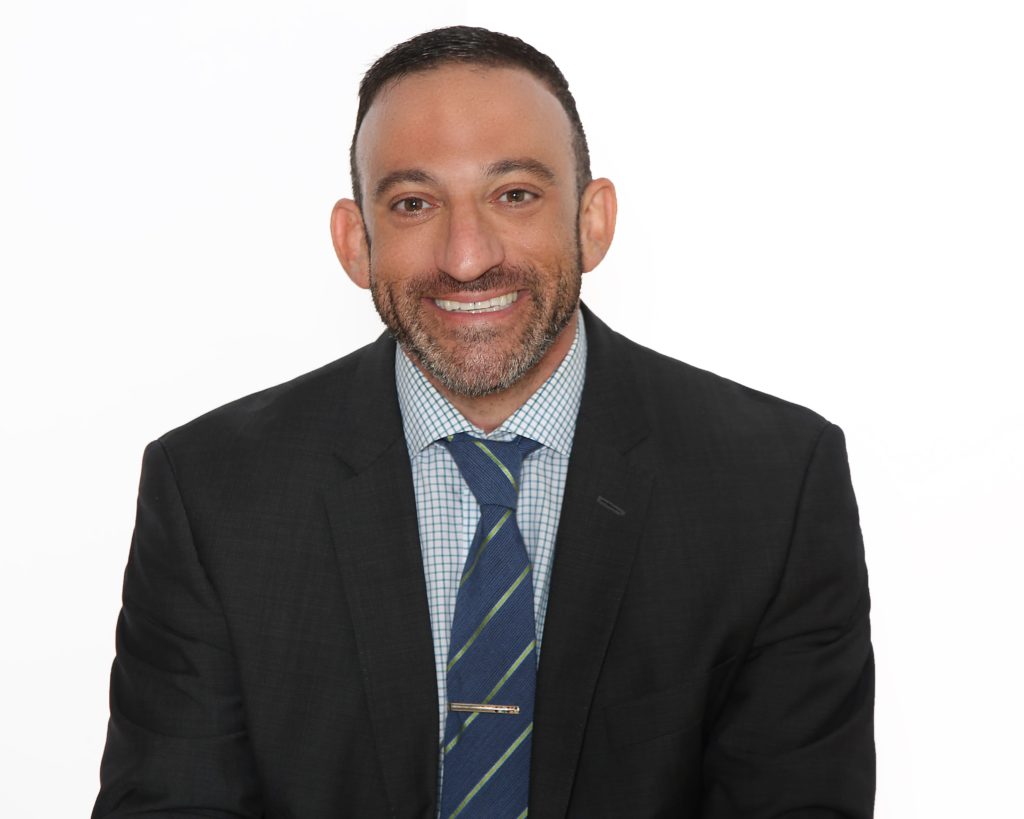Those diagnosed with certain illnesses and who spent at least 30 consecutive days living or working at Camp Lejeune or the Marine Corps Air Station (MCAS) New River between August 1953 and December 1987 can seek compensation and health benefits through the U.S. Department of Veteran's Affairs.
New legislation passed this year by Congress paves the way for lawsuits against the U.S. government for its failure to warn residents and service members working at these military bases that the drinking water, including in family housing, contained dangerous contaminants.
While criteria aid the federal government in deciding disability claims filed by veterans and their family members and billions of dollars provide settlements for legal claims for the health effects caused by Camp Lejeune water contamination, one big question remaining is how long a does a Camp Lejeune water contamination lawsuit take.
The Amount of Time You Have to File a Claim
Individuals seeking compensation or health benefits through the VA disability claims process generally do not have a time limit when they file their claims. They simply file their claim and submit supporting documents so that VA administrators can determine the amount of disability and other benefits owed to the claimant.
Previously, there have been attempts by those impacted by Camp Lejeune water contamination to file a legal claim against the U.S. government in civil court. Courts dismissed past lawsuits due to a provision in North Carolina law that prevents filing personal injury claims more than ten years after an act or omission resulting in harm.
This provision left potential water contamination claimants largely out of the process as they generally didn't know the water contamination existed or that it had caused a debilitating illness until well after North Carolina's 10-year statute of repose had passed.
The Camp Lejeune Justice Act of 2022, passed by the House in March and by the Senate in late June, provides the ability of Camp Lejeune claimants to file a lawsuit against the U.S. government for failing to warn the residents and workers of water contamination. Under the act's provisions, claimants would have two years from the date of diagnosis of a condition known to be related to the contamination. For those diagnosed, the deadline for filing a legal claim is the date on which the law is enacted.
The Amount of Time the VA Needs to Consider a Disability Claim
Currently, the VA reports that its disability claims process takes more than four months from the time you submit the claim until it reaches an award determination. During the time it takes for the VA to consider the claim, the claimant needn't do anything except submit additional information about their presence at an affected site or their disability if requested.
The timeline of filing a disability claim consists of:
- Once the VA has received the claim, the administration will inform the claimant. If you filed the claim online, this notification would come in an on-screen message when the claim is submitted. If the claim is submitted by mail, the VA will mail a letter in about one week informing them that it received the submission.
- The VA will conduct an initial review of the claim and request supporting documentation.
- The VA will review evidence from the claimant, health care providers, governmental agencies, and others and determine whether there is satisfactory evidence to show presence at an affected site, the diagnosis of a related issue, and the impact of that issue on the claimant's ability to work.
- The claim is complete once the VA has prepared and mailed you an entire claim decision packet. This packet includes all of the details that went into the VA's decision about the claim and the procedure the claimant can use if they wish to appeal the decision.
What Benefits Can a VA Disability Claim Provide?
Veterans, reservists, and guardsmen and their family members who worked or lived at least 30 days at Camp Lejeune or MCAS New River can seek benefits from the VA, including:
- Health benefits include the cost of medically treating a condition caused by Camp Lejeune water contamination, including reimbursement of out-of-pocket medical costs incurred by family members.
- Disability payments, which involve wage replacement for those who can't work due to their condition. These benefits increase as the claimant's level of disability increases.
How Long a Class-Action Settlement Will Take
The time it takes to resolve a class-action lawsuit is hard to predict, even when the federal government is the defendant and Congress has allotted billions of dollars for these legal claims.
Some class actions resolve quickly, while others take more time. Meeting the VA criteria for presumptive eligibility does not automatically result in eligibility to receive a settlement through a lawsuit filed in federal court.
The Camp Lejeune Justice Act still requires determinations to be made on a case-by-case basis based on evidence. However, the act expands the evidence that can prove the effects of water contamination, including allowing the use of published studies that link certain medical conditions to the compounds found in the contamination.
The Types of Benefits Available Through a Water Contamination Lawsuit
Individuals seeking compensation through a water contamination lawsuit may recover past and future medical expenses related to the treatment of the illness, payments involving the loss of earning capacity, and compensation for pain and suffering that the claimant endured as a result of their water contamination-related illness.
Who May File a Claim?
Individuals diagnosed with a medical condition associated with exposure to the compounds contained in the contamination of Camp Lejeune's water supply can seek benefits, including compensation and medical treatment, through the VA if they:
- Are a veteran, reservist, or guardsman who served at Camp Lejeune or the Marine Corps Air Station (MCAS) New River for at least 30 consecutive days between August 1953 to December 1987.
- Are the family member of a veteran, reservist, or guardsman, and they lived at Camp Lejeune or MCAS New River for at least 30 consecutive days between August 1953 to December 1987.
Those who seek compensation through a lawsuit must show that they first attempted to gain benefits through the VA disability claims process. If the VA denies their claim, they may file a lawsuit to seek compensation.
The Types of Water Contamination-Related Medical Conditions Covered By a VA Disability Claim
In addition to being able to prove that you were present at Camp Lejeune or MCAS New River during the period of exposure to contaminants in drinking water, you must show that you have:
- Bladder cancer
- Breast cancer
- Esophageal cancer
- Female infertility
- Hepatic steatosis
- Kidney cancer
- Leukemia
- Lung cancer
- Miscarriage
- Multiple myeloma
- Myelodysplastic syndromes, including aplastic anemia
- Neurobehavioral effects
- Non-Hodgkin lymphoma
- Renal toxicity
- Scleroderma
What Caused Water Contamination at Camp LeJeune?

U.S. Marine Corps Base Camp Lejeune was established in North Carolina in 1942.
Forty years later, the Marine Corps discovered that an array of volatile organic compounds (VOCs) contaminated the drinking water provided by two of its distribution plants, including:
- Trichloroethylene (TCE), an industrial degreaser that is used on metals as well as in dry cleaning processes and can cause harmful effects on the liver, kidney, immune, and endocrine systems.
- Tetrachloroethylene (PCE), also commonly used in degreasers and dry cleaning processes. PCE contamination may cause bladder cancer, non-Hodgkin lymphoma, and end-stage renal disease.
- Benzene, a common compound with several uses, including in detergents, rubbers, and resins. Benzene is associated with the development of leukemia and non-Hodgkin lymphoma.
- Vinyl chloride, used to make PVC pipes and other types of plastics, and packaging materials. Over time, exposure to high levels of vinyl chloride may cause liver cancer.
The waste disposal practices of an off-base dry cleaning service known as ABC One-Hour Cleaners may have contaminated the water.
The impact of the contamination differed depending on the main contaminant found in each water distribution system.
- The Hadnot Point water distribution system came into service in 1942. It served the Mainside barracks, Hospital Point family housing, and the family housing at Midway Park, Paradise Point, and Berkeley Manor until 1972. The main contaminant found in the supplies for this system was TCE. In 1982, there were 1,400 parts per billion (ppb) of TCE found in the water supplies at Hadnot Point. The acceptable amount of this contamination in U.S. drinking water is five ppb. These sources of contamination for this water distribution system included leaking underground storage tanks and waste disposal sites.
- The Tarawa Terrace water distribution system began operation in 1952, providing drinking water for Tarawa Terrace family housing and the Knox Trailer Park until it was shut down in 1987. The main contaminant of this system was PCE, with the source of contamination being the ABC One-Hour Cleaners. In 1985, water tests revealed a PCE level of 215 ppb—far over the five ppb allowable in U.S. drinking water supplies.
The Holcomb Boulevard water distribution system is also included in Camp Lejeune water contamination sources. While the wells feeding this system were generally free of contaminants, water users on the system were supplied from the Tarawa Terrace distribution system for a brief period in early 1987.
Tarawa Terrace also acted as a distributor intermittently from 1972 to 1987 during the dry spring and summer seasons. This system provided drinking water to family housing at Midway Park, Paradise Point, Berkeley Manor, Watkins Village, and Tarawa Terrace after 1987.
Finding an Attorney to Assist You With Your Claim

Working with an attorney who understands the claims process and evidence needed to prove your claim is vital to your success. Failure to provide documentation of your presence at the site and the diagnosis of a related issue can result in delays.
If the VA already denied your claim, the Camp Lejeune Justice Act provides an additional option for obtaining compensation through a federal lawsuit. Legal claims against the federal government for Camp Lejeune water contamination will likely be certified as a class action, and Congress has already provided settlement money. Additionally, the legislation makes it easier for claimants to prove their claims using published studies linking exposure to certain medical conditions.
Even still, these claims tend to be extraordinarily complex, and claimants benefit from the guidance and knowledge of an attorney with experience in both class action claims and claims against the government.
Do you want to know more about filing a Camp Lejeune water contamination claim? Contact a Camp Lejeune water contamination lawyer for a free case evaluation.
The Dolman Law Group works with local counsel in any jurisdiction outside Florida for the purpose of filing lawsuits in jurisdictions wherein we are not licensed. Thus, we will follow each State's ethical rules to ensure a local attorney is involved.